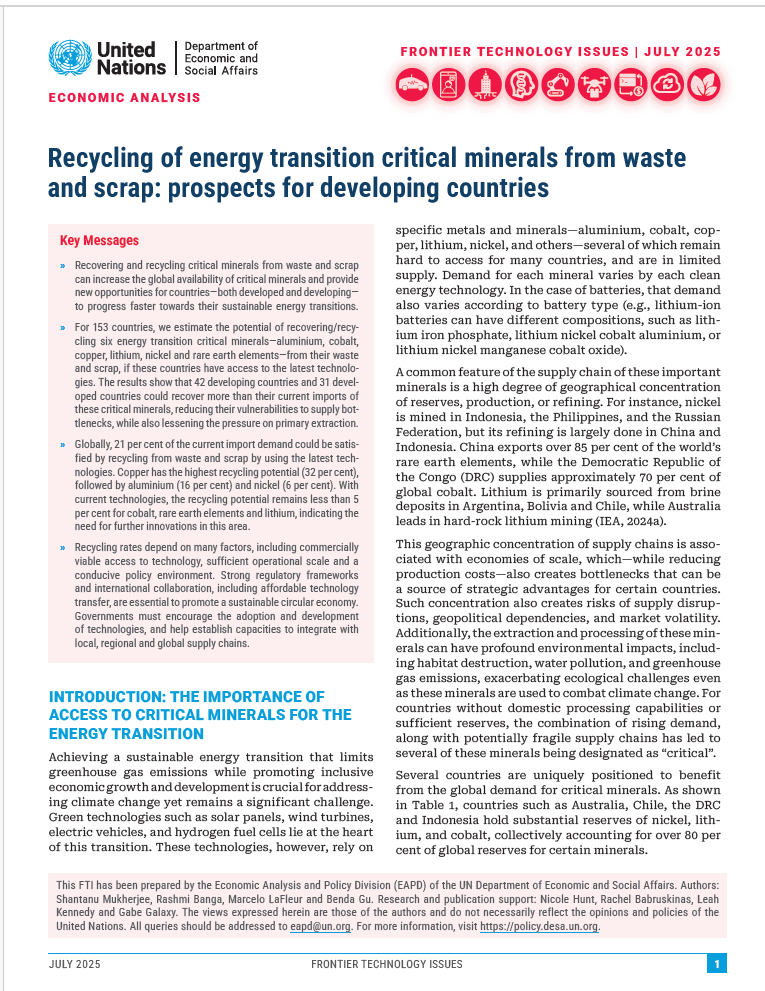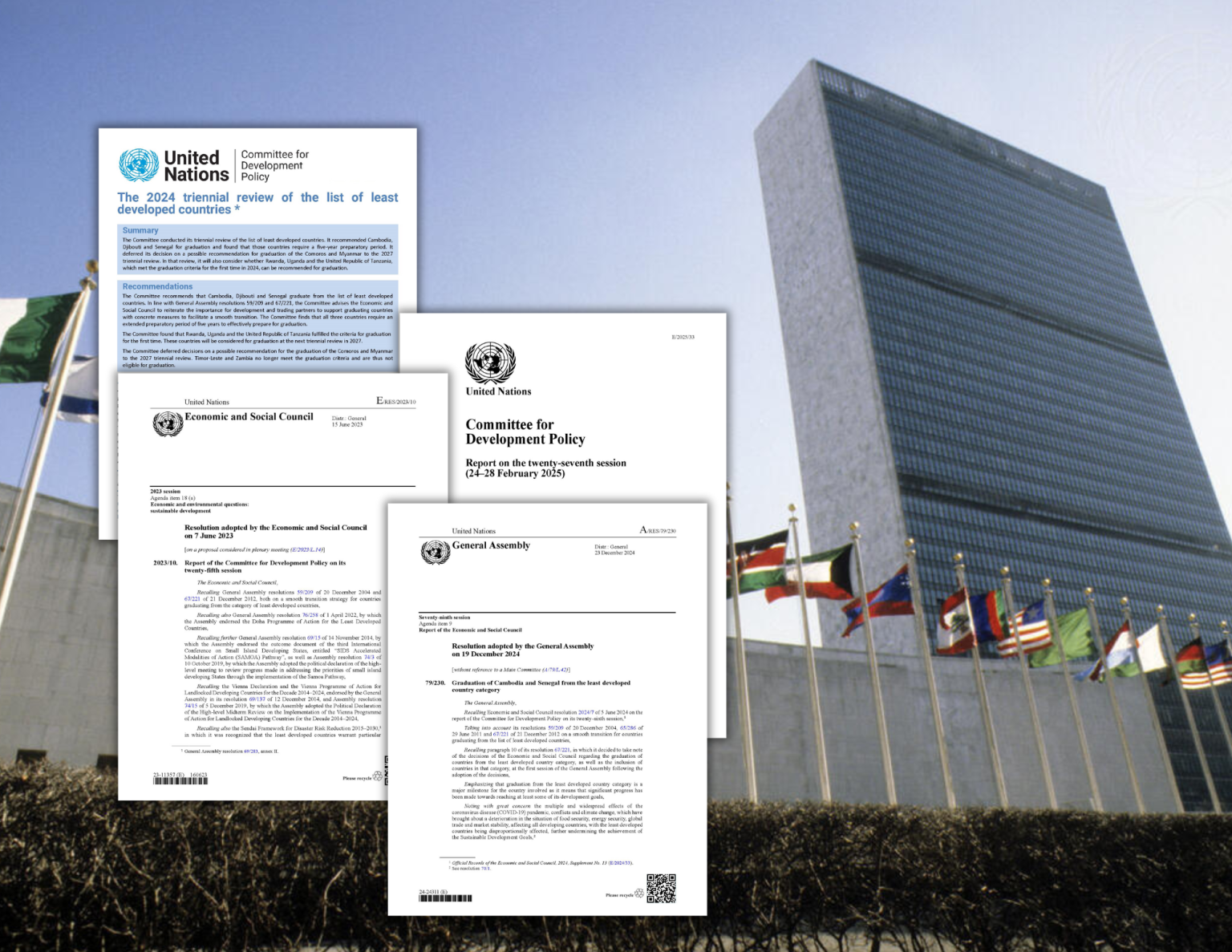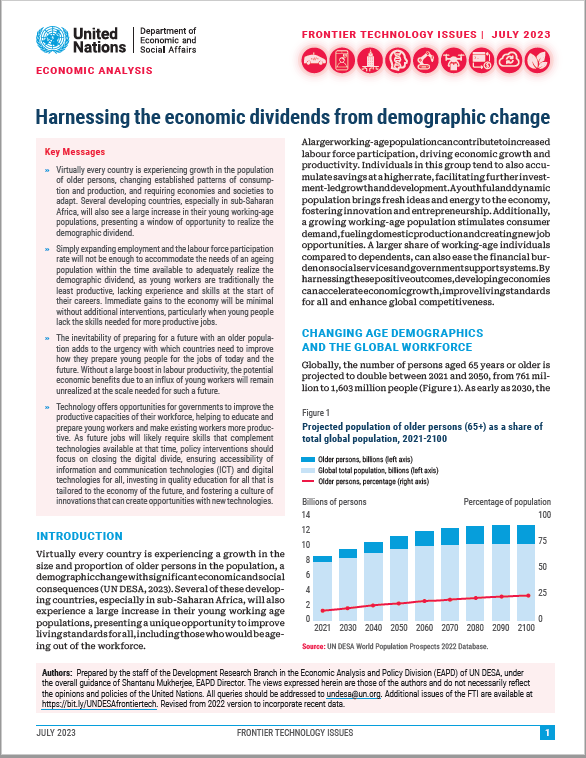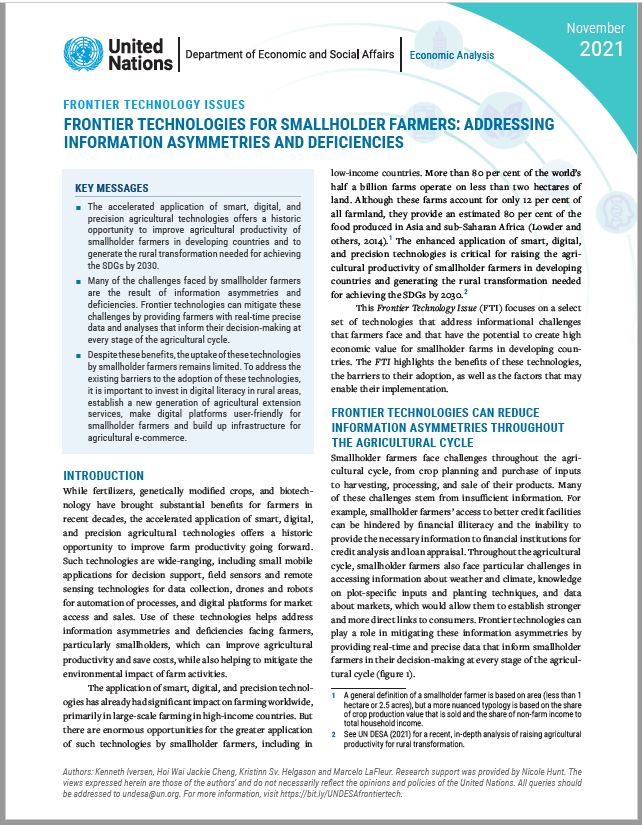Publications
Displaying 1 - 10 of 185
عربي, 中文, English, Français, Русский, Español CDP excerpts on the report by theme New development contexts and pathways Convergence in human and social development Reviewing the framework for graduation from the least developed country category Enhanced monitoring of countries that are graduating or have graduated from the list of least developed countries ECOSOC resolution (E/RES/2025/L.9) on the Report of the Committee for Development Policy
عربي, 中文, English, Français, Русский, Español
عربي, 中文, English, Français, Русский, Español CDP excerpts on the report by theme Innovation ecosystems for development, structural change and equity 2024 triennial review of the list of least developed countries Enhanced monitoring of countries that are graduating or have graduated from the list of least developed countries Graduation – the global context ECOSOC resolution (E/RES/2024/7) on the Report of the Committee for Development Policy
عربي, 中文, English, Français, Русский, Español GA resolution (A/RES/79/230) on the Graduation of Cambodia and Senegal from the least developed country category
…
عربي, 中文, English, Français, Русский, Español The Committee for Development Policy (CDP) held its 26th Plenary meeting from 4 to 8 March at UN Headquarters in New York. H.E. Mr. Robert Rae, Permanent Representative of Canada to the United Nations and Vice-President of ECOSOC, and Mr. Li Jinhua, Under-Secretary-General for Economic and Social Affairs, addressed the CDP members during the opening session. The Committee addressed several issues related to the least developed countries (LDC) category, as well as the issue of innovation ecosystems for development, structural transformation and equity, as…
Place: UNHQ, New York, USA Documents Agenda Report of the Committee for Development Policy (E/2023/33, Supplement No. 13)
عربي, 中文, English, Français, Русский, Español Opening Statements Statement by Mr. Li Jinhua, Under-Secretary-General for Economic and Social Affairs Open Session - The just transition debate: ambition meets reality 21 February 2023, 1:15 - 2:45 PM, Conference Room 7, UNHQ, New York Link to the event page The recording of the event can be watched at: UN Web TV Interactive Session with ECOSOC 24 February 2023, 10:00 - 11:30 AM, ECOSOC Chamber, UNHQ, New York Opening remarks by HE. Ambassador Lachezara Stoeva, President…
عربي, 中文, English, Français, Русский, Español
Place: Virtual meeting Documents Agenda Report of the Committee for Development Policy (E/2022/33, Supplement No. 13)
عربي, 中文, English, Français, Русский, Español Corrigendum (E/2022/33/Corr.1) to the Report of the Committee for Development Policy
عربي, 中文, English, Français, Русский, Español Opening Statements Statement by H.E. Ambassador Collen Vixen Kelapile, President of United Nations Economic and Social Council (ECOSOC) Statement by Liu Zhenmin, Under-Secretary-General for Economic and Social Affairs Open Session on ECOSOC Interaction 25 February 2022, 10:00 - 11:30 AM (NY time)
The open session informed the ECOSOC membership on the…
 Welcome to the United Nations
Welcome to the United Nations





